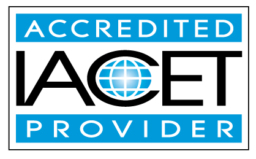ISO Compliance Laboratory Training Courses
AWPT laboratory training courses help you set yourself apart as an industry leader. Create consistent processes and instill confidence in your product.
Our laboratory quality systems courses provide a comprehensive educational opportunity. We cover many topics within our curriculum, including international standards training, quality systems training, technical tools, and soft skills. Mastering these concepts is a great way to move ahead of your competition and learn industry best practices. Whether you prefer traditional classroom learning, customized contract training, or self-directed online e-learning, AWPT’s expert instructors and course designers are eager to share their knowledge of the industry’s most sought-after topics. You will have the opportunity to discuss and apply key topics through activities, assessments, and interactive tools, ensuring that you can not only retain but apply what you have learned.
Each course addresses a different QMS component to maintain high laboratory standards. Learn more about our laboratory quality systems courses below.

